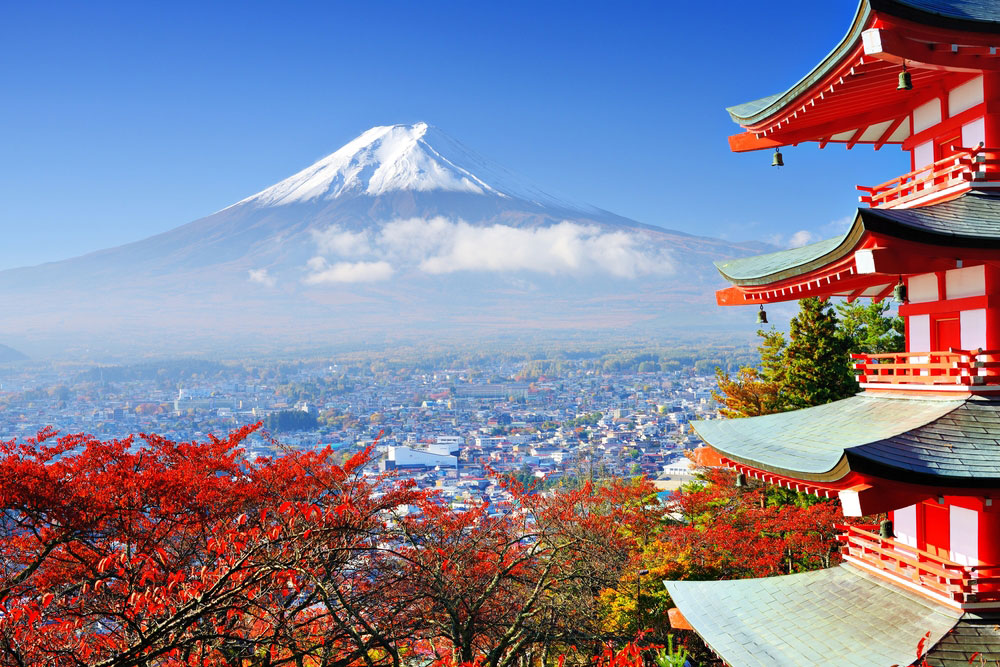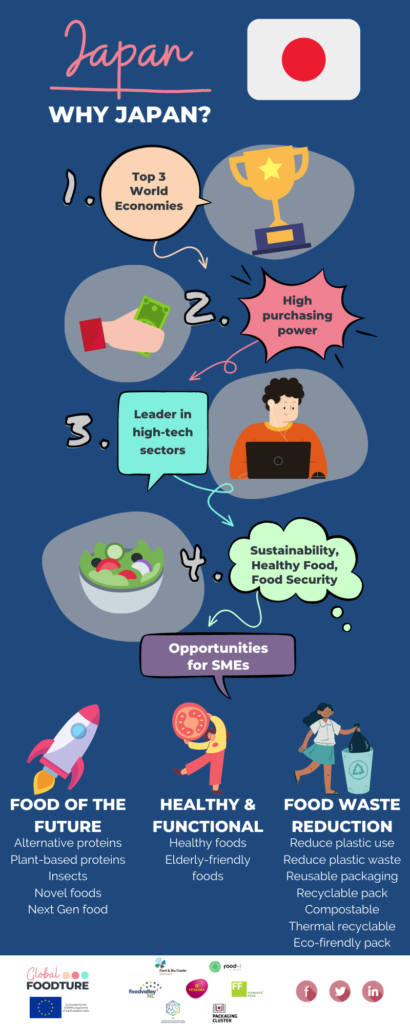
Did you know… Japan?
Japan is classified as one of the Top 3 world economy and is well known for its high purchasing power. In terms of demography, Japan is one of the 11 countries with the biggest populations in the world. This population is ageing and there is a big involvement in silver economy initiatives. One of the impacts of this aspect is the labor shortage in agriculture.

The agricultural production in Japan is highly sophisticated. The overall quality of the food manufacturing, advanced distribution systems and cold chains is well identified. Japan has a world leadership related to technology specially in high-tech sectors such as IA (society 5.0). The main trends identified are sustainable, healthy food, food security and a commitment to shift to sustainable consumption patterns.
One of Japan’s important constraints, natural disasters, is related to climate change. It has severely affected the country.
Regarding sustainable initiatives, the Japanese government is nowadays prioritizing policies in favor of the environment (climate change & environment for the Food and Beverages industries). Exemplifying these actions, a law to reduce the use of plastic in the food sector was created with an objective to achieve carbon neutrality by 2050.
Due to Japan’s geographical situation, its food supply chain is heavily dependent to importations. This situation until today has an important impact on the agri-food activities and on Japanese agri-food development strategies in Asia where Japan has a privileged position thanks to different trade agreements that complete the existing Free Trade agreement with the European Union.
The main priority topics addressed by our Japanese partners are related to food transition: Alternative proteins, plant-based proteins, insects, healthy food, functional food (ederly-friendly foods), novel foods/ next Gen food and also to environment issues: Food waste reduction and solutions to reduce plastic use and plastic waste: reused, recycle, compostable, thermal recyclable, eco-friendly packaging.
An important aspect to consider when collaborating with Japan is the language barrier and the cultural codes. It has a big importance for Japanese partners and it’s essential to adapt the communication and be well-informed to improve internationalization opportunities. Specific business environments and time for decisions should be considered. Moreover, the analysis and discussions with partners highlighted the fact that the Agri-food innovation ecosystem is not well structured in Japan and that the consortium may have difficulties to find relevant structures such as agri-food innovation clusters or relevant key players to facilitate access to Japanese SMEs.
Global Foodture is preparing a series of trainings and master classes to better understand the four projects targeted regions Japan, South Korea, Singapore and Thailand.



1 Comment